A German Descendant
The Deutsche Schäferhund, better known as the German Shepherd, originated in Germany in 1899. They were originally bred as a working dog, herding and guarding sheep under the guidance of Captain Max von Stephanitz. He was an ex-cavalry Captain and former student of the Berlin Veterinary College who believed strongly that dogs should be bred for working. The first German Shepherds arrived down under in Western Australia in 1904. They were known as ‘German Sheep Dogs’. They made their way to Melbourne around 1925 and eventually across Australia, but in 1928, the Federal Government banned the import of this breed. This ban lasted for 43 years, however it didn’t stop the odd few dogs from being smuggled in. The import ban was lifted in 1972 with some restrictions remaining until 1976. With the lifting of the import ban the breed enjoyed a surge in popularity. In fact, during the 1990s, the German Shepherd became the most popular breed of dog in Australia, according to puppy registration. Today, they remain a popular four-legged family member and still a hard-worker, particularly in the protective services.
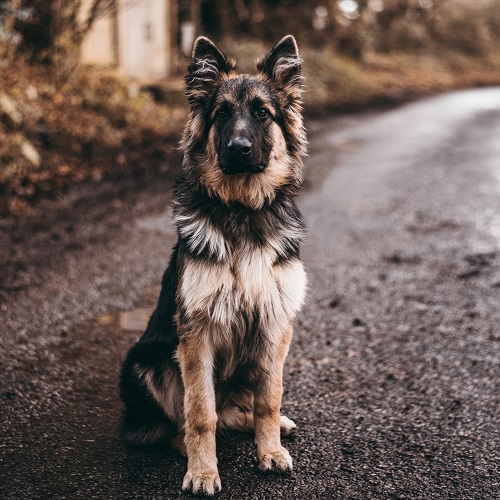
The Loyal Protector
When we think of the German Shepherd, we think of the loyal ‘Guard Dog’ or ‘Police Dog.’ They have a strong instinctive drive and are incredibly self-confident. (However, there was a puppy, ‘Gavel’ who flunked out of the Police Academy in 2017 for being ‘too nice’. So instead the pup was given the job of Vice-Regal Dog to the Governor of Queensland – still a hard-working dog!). Because they have a protective nature when it comes to their family and territory, they are not inclined to become immediate friends with strangers – they’re always a little wary. As long as they are properly socialised and trained, there shouldn’t be any signs of aggression. It’s not all serious business though. They do have a cheeky sense of humour and love to play games. As a family member they’re affectionate, intelligent and will give you a lifetime of love and happiness. See your local Greencross Vets if you’d like to know more about a German Shepherd’s temperament.
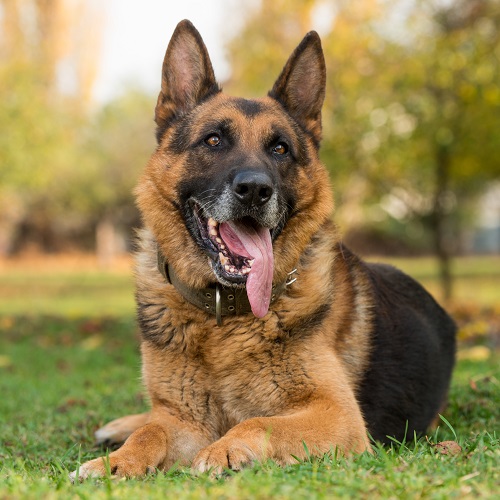
Appearance
The German Shepherd is a large sized dog. They’re long in comparison to height. They are powerful and muscular with strong hindquarters. There are two kinds of German Shepherds when it comes to their coat. The ‘Normal Coated’ and the ‘Long Coated.’ The ‘Normal Coated’ carries a thick undercoat and the outer coat should be dense and made up of straight, hard, close lying hairs. The ‘Long Coated’ have longer, silkier hair on their chest, back, face, tail and the backside of their legs. The most common colour of fur is black and tan, with the black saddle pattern and black mask on face, but they can also come in camouflage, red, grey or black. They have a bushy, sabre tail that hangs down to the hock. Their skull slopes into a long, wedge-shaped muzzle that ends at their black nose and teeth that meet in a scissors bite. The ideal height for males is 61-64 cm and 56-58cm for females.
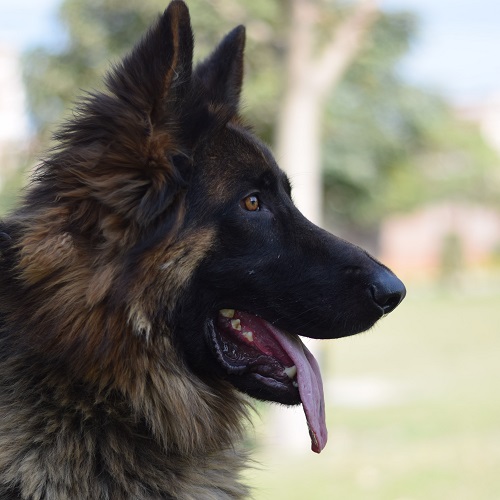
Suitability
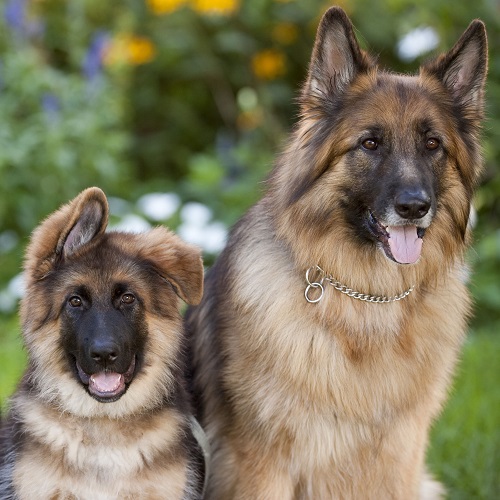
Suitability
Although they have a reputation for being a tough dog, German Shepherds (particularly females) are generally sweet-natured and good with children. Males might be a little less forgiving of rough play and unless raised with children and well trained, they should be supervised. If German Shepherds are well trained and in a loving environment, they shouldn’t show signs of aggression. It’s important to be kind, consistent and firm with them. Poor socialisation and lack of training can lead to them becoming spoilt and unruly. Adults are very active and require lots of exercise but puppies on the other hand should not be overworked. Work them up gradually to an active lifestyle. Daily walks are important and make sure they have lots of space to run around in. Like most working dogs they can become bored and destructive if left alone too long. Ask your local Greencross Vets if this breed would suit your family’s lifestyle.
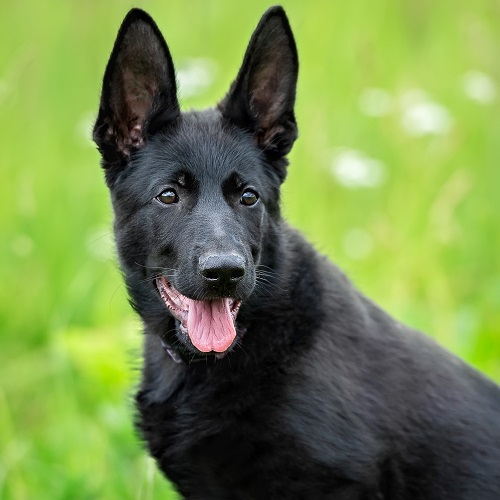
Health & Wellbeing
The majority of health issues associated with German Shepherds are breeding related. The most common genetic issues are Hip Dysplasia, Haemophilia (males), Elbow Dysplasia and digestive problems, formally known as Exocrine Pancreatic Insufficiency. Some other health issues include Degenerative Myelopathy, Perianal Fistula, Atopic skin disease and Hemangiosarcoma. That’s why it’s so important to get your pup from a reputable breeder, where regular health checks are carried out. Keep in mind that regular trips to the vet and a healthy lifestyle will also minimise the risks. Talk to your local Greencross Vets for more health information.
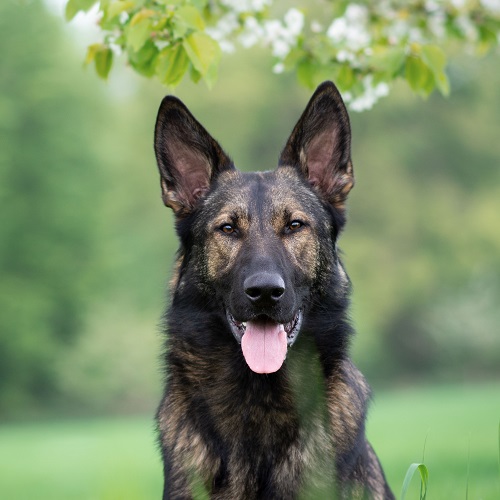
Grooming
Give your German Shepherd a daily brush to keep their coat lush. If you have a ‘Long Coated’ German Shepherd, they do require a little extra grooming. Because they are double-coated with a coarse water-resistant outer coat and heavy wooly undercoat, they shed regularly. Give them an occasional bath when needed and just like humans, their teeth need daily brushing.
At Greencross Vets, nothing is more important than the health and wellbeing of your four-legged friend. If you have any more questions, please reach out to your local Greencross Vets. You can find your local Greencross Vets here. We’re more than happy to help!

 Greencross Vets
Greencross Vets 

